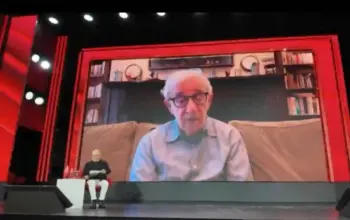A shocking criminal operation has been uncovered in North Yorkshire, where a group of men ran a large-scale smuggling scheme for nitrous oxide, commonly known as ‘hippy crack.’
The scandal came to light after images surfaced of Benjamin Richardson grinning for a selfie beside piles of cash, a clear snapshot of the staggering profits the gang made from their illicit trade.
Millions in Profits from Fake Catering Companies
Benjamin Richardson, 38, his twin brother Thomas, and associate Carl Messen set up a network of bogus catering companies with names like Worldwide Coffee Traders Ltd and Barista Distribution Ltd.
These shell companies were a front for their illegal business, allowing them to import 91 million canisters of nitrous oxide into the UK—an astronomical amount compared to the 3.8 million canisters legally used by major chains like Costa and Starbucks over the same period.
Illegal Trade Despite National Ban
Although nitrous oxide is legally used in medical and catering contexts, a 2016 law banned its sale or import if intended for recreational use.
Between May 2016 and December 2018, the gang blatantly ignored this ban, flooding streets with the substance while raking in more than £16 million in profits.
Investigators later discovered that over £12 million of this cash was deposited physically, a clear sign of money laundering.
The Court Case and Sentences
After a 12-week trial at Leeds Crown Court, the scale of the operation became clear.
Benjamin Richardson, from Barlby, North Yorkshire, was sentenced to six years and two months for conspiracy to import a psychoactive substance, money laundering, and possessing criminal cash.
His twin brother Thomas received five years and eight months, while their accomplice Carl Messen, 58, from Doncaster, was jailed for three years and two months.
Law Enforcement Speaks Out
Ramona Senior, head of operations at the Yorkshire and Humber Regional Organised Crime Unit (YHROCU), described the gang as a highly organised enterprise solely focused on illegally importing nitrous oxide.
“They structured their businesses to hide their activities and launder millions, all while knowing the substance would be sold as a drug,” she said.
She added that the sentences reflect the severity of the crimes and highlighted that proceedings to recover the gang’s ill-gotten gains are still ongoing.
The Impact on Communities
Senior emphasized the wider harm caused by the operation, noting that such illegal trade not only fueled addiction but also undermined public safety.
The case stands as a warning that criminal enterprises attempting to profit from psychoactive substances will face serious consequences.



